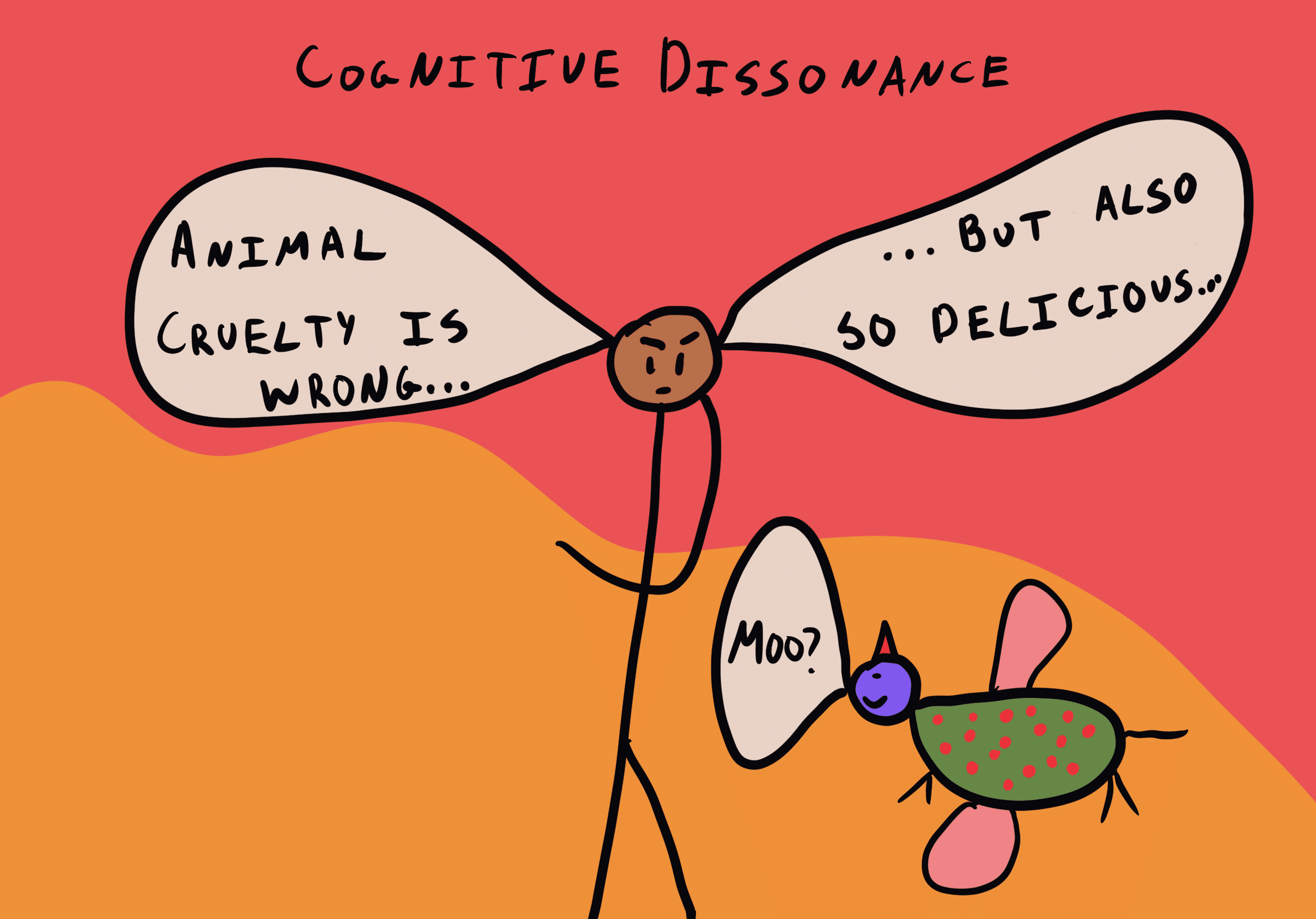Cognitive dissonance is a psychological phenomenon and cognitive bias that occurs when individuals experience a state of tension or discomfort due to holding conflicting beliefs, attitudes, or values. In an attempt to reduce this discomfort, people often seek to reconcile the conflicting elements, sometimes through rationalization or modification of their beliefs or behaviors.
Explanations:
Cognitive dissonance arises from our natural desire for internal consistency and harmony in our thoughts, beliefs, and behaviors. When we encounter conflicting ideas or engage in actions that contradict our beliefs, it generates discomfort, motivating us to resolve the conflict.
Examples:
Smoking and Health Beliefs: A person who smokes and is aware of the health risks may experience cognitive dissonance. To reduce the discomfort, they might downplay the risks or justify their habit in some way.
Environmental Concerns and Consumer Choices: Someone who is environmentally conscious but frequently uses single-use plastic products may experience dissonance. They might rationalize their choices or reduce their use of plastic to align with their values.
Political Beliefs and Contradictory Actions: An individual who identifies with a political party but is disappointed by certain actions taken by party members may experience cognitive dissonance. To resolve it, they may adjust their beliefs or continue to support the party while criticizing specific actions.
Solutions:
Self-Reflection: Engage in self-reflection to identify instances of cognitive dissonance in your life. Recognize when your beliefs, values, and behaviors are in conflict.
Change Beliefs or Behaviors: You can address cognitive dissonance by modifying your beliefs or behaviors to bring them into alignment. This may involve changing your actions or reconsidering your convictions.
Seek Information: Gain more information and consider alternative perspectives to make informed decisions and reduce cognitive dissonance.
Acceptance: In some cases, it may be necessary to accept that cognitive dissonance is a natural part of life. Not all conflicts can be fully resolved, and accepting this discomfort is a valid response.
Addressing cognitive dissonance involves recognizing the discomfort caused by conflicting beliefs or behaviors and taking steps to reduce this tension through self-awareness and rational decision-making.
